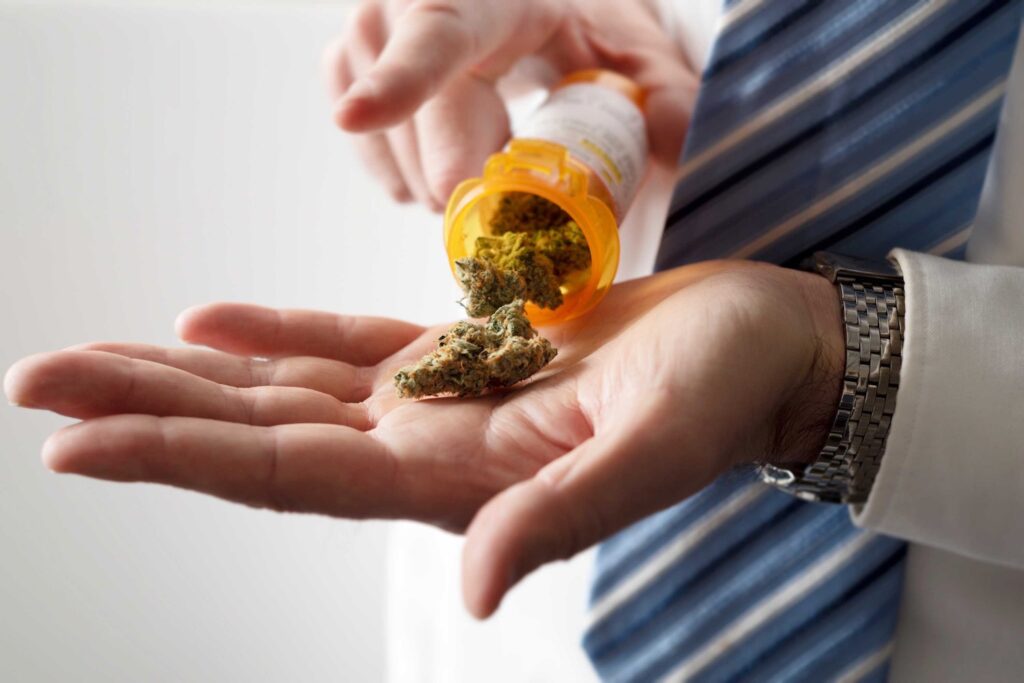Introduction
Medical marijuana is now legal in numerous U.S. states, and an increasing number of people are using it to treat a variety of medical conditions, including peripheral neuropathy. This article will explore the use of medical marijuana for peripheral neuropathy, including the pros and cons of using it for that condition.
Keep reading to learn more.
What is Peripheral Neuropathy?
Peripheral neuropathy is a condition caused by damage to the peripheral nervous system, which is composed of the nerves that connect the central nervous system (the brain and spinal cord) to all parts of the body. Neuropathy can cause pain, numbness, tingling, or burning sensations in any part of the body. It often affects the hands and feet, but it can occur in other areas as well.
The most common cause of peripheral neuropathy is long-term exposure to high levels of toxins such as alcohol or certain medications. Diabetes is another common cause of nerve damage, as high blood sugar levels can lead to nerve damage over time. Trauma from physical injuries can also damage nerves and lead to neuropathy symptoms. Vitamin deficiency and some autoimmune diseases can also cause nerve damage leading to peripheral neuropathy.
What are the Symptoms of Peripheral Neuropathy?
In addition to pain, numbness and tingling, other symptoms may include muscle weakness, loss of reflexes, fatigue, balance problems and difficulty walking. The severity of these symptoms depends on how much nerve damage has occurred–some people may experience only mild discomfort while others are severely disabled.
Treatment options vary depending on the underlying cause of the neuropathy but typically involve medications for pain relief as well as lifestyle changes such as quitting smoking or controlling blood sugar levels in diabetes patients.
Can Medical Marijuana Help Treat Peripheral Neuropathy?
Many medical experts have considered medical marijuana for relief from peripheral neuropathy due to its potential anti-inflammatory properties that might help reduce inflammation around damaged nerves which could help reduce pain from neuropathy. Research into this potential treatment is still ongoing, but so far it appears that cannabis products may be effective at reducing pain from a variety of chronic conditions including neuropathy caused by diabetes or chemotherapy treatment for cancer patients.
However, more research needs to be done before medical marijuana can be recommended for treating peripheral neuropathy with certainty due its potential side effects when used for long periods of time or in large doses.
How Can Medical Marijuana Address Peripheral Neuropathy?
Medical marijuana has been found to have analgesic properties which can help to reduce pain associated with nerve damage. It also works by reducing inflammation which helps decrease symptoms related to peripheral neuropathy such as burning, prickling and numbness sensations. Cannabis contains cannabinoids which interact with endocannabinoid receptors in the brain and body that influence pain perception. THC compounds in cannabis are known to act as natural analgesics by calming overactive nerves and helping to block pain signals sent to the brain.
Cannabis may also be effective at treating some underlying factors of peripheral neuropathy such as diabetes or autoimmune diseases that can be responsible for nervous system damage in some cases. Studies have indicated that THC may help protect against nerve damage due its antioxidant properties and ability to reduce inflammation and oxidative stress on nerves. By reducing inflammation, cannabis may be able to help lower the chances of developing complications related to diabetes such as peripheral neuropathy.
In addition, medical marijuana may provide emotional benefits for individuals living with persistent nerve pain since it has been linked with reduced stress levels and improved moods in patients who use it therapeutically. Research into using cannabis for treating peripheral neuropathy symptoms is ongoing but results so far suggest that medical marijuana has potential as an effective treatment option for those dealing with this condition.
To learn more about medical cannabis and how to obtain it, contact ReThink-Rx today.

Dr. Nicholas Marsh has been a respected board-certified anesthesiologist in Northern Virginia for over 35 years. Recognized as a top doctor by FindaTopDoc.com, his vision for providing top-quality medical services is driven by his passion for patient comfort and dignity.

